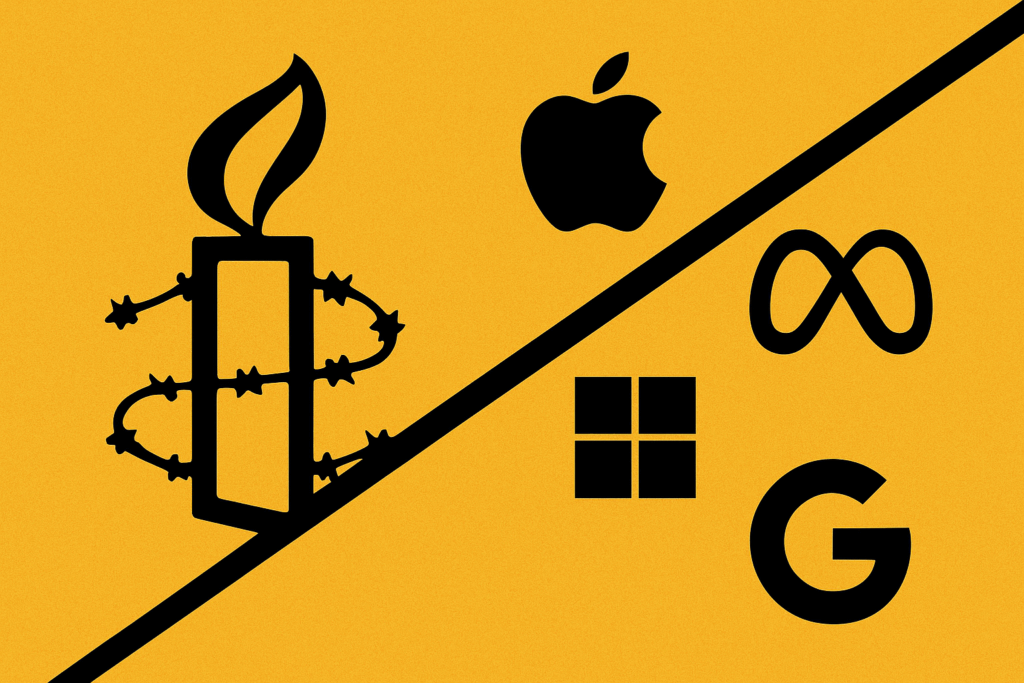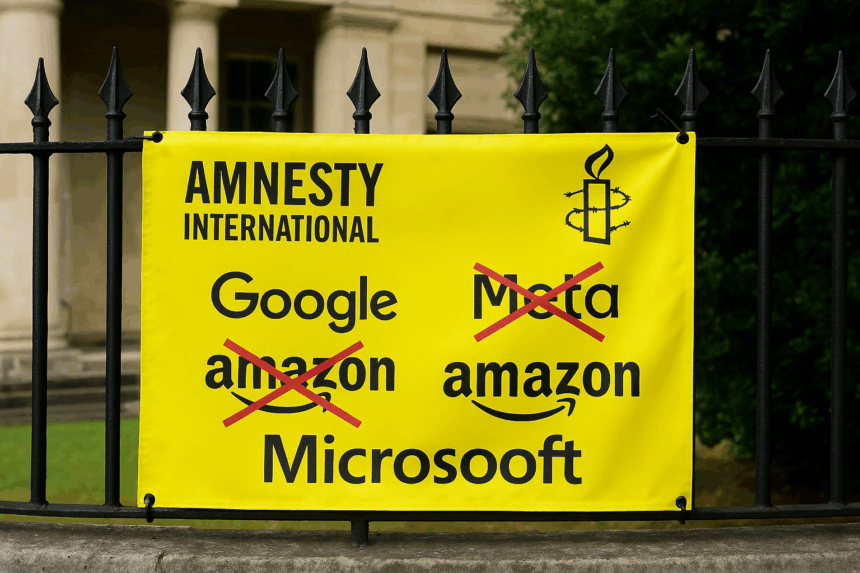Amnesty International is calling on governments to break their dependence on Big Tech companies like Google, Meta, Microsoft, Apple, and Amazon. This appeal is part of Amnesty International’s Big Tech appeal, which, in its new report, Breaking Up With Big Tech, warns that the concentration of power in a few corporations threatens privacy, nondiscrimination, and access to information.
What’s Happening & Why This Matters
The report argues that these companies act as “digital landlords,” setting the terms of online interaction for billions of users. Amnesty stresses that unchecked power is now expanding into artificial intelligence, where speed and scale often outweigh fairness and accuracy. Biased data, it says, could deepen inequality and leave marginalised groups more vulnerable to profiling and mass surveillance.
Reach of AI and Data Control
Amnesty’s report singles out Google and Meta. These companies are criticised for extracting and monetising vast amounts of personal data. According to the group, this dominance leaves users with little control over how their information is collected or used. As the report puts it: “The more data they collect, the more dominant they become, and the harder it is for competitors to challenge their position.”

Algorithms on YouTube, Facebook, and Instagram are designed to promote engagement and profit. They often display content that provokes strong emotions or outrage. Amnesty also points to Meta’s past failures. It claims that these algorithms amplified content that contributed to atrocities in Ethiopia’s Tigray war and in Myanmar during the Rohingya crisis.
While Meta disputes many of these claims, insisting that privacy is “at the core of everything,” it does, Amnesty argues that these platforms’ influence on global events is too dangerous to ignore. Apple, Amazon, and Microsoft are also criticised for their market dominance. However, Microsoft responded that it remains “firmly committed to respecting human rights.” Apple and Amazon did not issue public replies.
Policy Recommendations
Amnesty is urging governments and competition authorities to treat Big Tech regulation as a human rights issue. Its recommendations include:
- Using competition law as a human rights tool.
- Investigating tech companies for human rights harms.
- Blocking mergers that risk further consolidation.
- Breaking up corporations found to abuse dominance.
On AI, Amnesty International calls for thorough investigations into the development and deployment of generative AI systems. These investigations aim to identify human rights risks, noting that many companies do not share the datasets used to train their models.
The backdrop of this report is tense transatlantic relations. U.S. President Donald Trump has already threatened heavy tariffs on governments that regulate American tech companies. Questions abound about whether the European Union will act on Amnesty’s demands.
TF Summary: What’s Next
Amnesty International’s call to rein in Big Tech places governments in a difficult position. They must balance the protection of human rights with the risk of worsening trade tensions with Washington. With the EU under pressure to respond to both U.S. tariff threats and mounting public concern, the report amplifies debates on the balance between innovation, free markets, and civil liberties.
If the recommendations gain traction, we could see antitrust investigations expand. Actions might lead to potential breakups of tech giants and tighter scrutiny of AI systems. The battle between human rights advocates and tech monopolies is only beginning.
— Text-to-Speech (TTS) provided by gspeech


